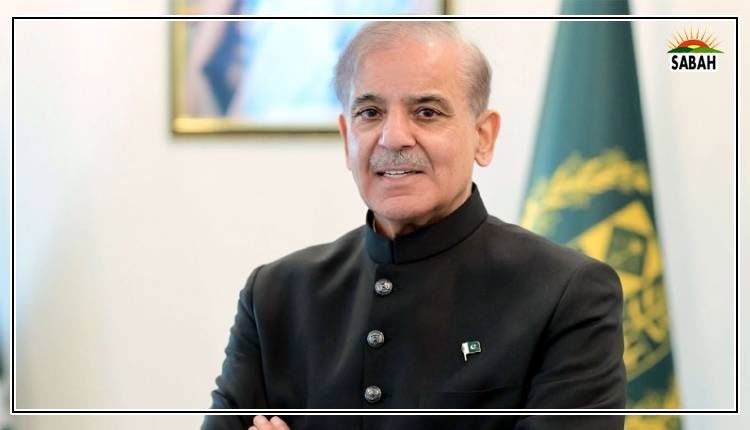A useful trip to Japan… Dr Naazir Mahmood
In the changing geopolitical situation of this region, economic relations are going to play a significant role. With Pakistans volatile economy and a tight financial position, the country needs to tread its path carefully. In this context, Foreign Minister Bilawal Bhutto-Zardari has been choosing his destinations discreetly.
It is worth recalling that the PTI government and its supreme leader did tremendous harm to Pakistans international relations with nearly all friendly countries from the US and China to Iran and Saudi Arabia. After the change of government in April 2022, the new team that Bilawal and Hina Rabbani Khar have been leading has done wonders to transform the foreign office and rectify the damage done from 2018 to early 2022. Within a short period of a year or so, Pakistan again finds itself in a much better position internationally.
While China and Saudi Arabia may be Pakistans best friends, there are other considerations that should also be included in the new calculation. For a long time now, Pakistan has not been able to follow a foreign policy that keeps the country in the middle path.
In the bipolar world of the 20th century, Pakistan was clearly on the American side. That one-sidedness was the result of the policies that military dictators from Generals Ayub Khan to Yahya Khan, Ziaul Haq and Pervez Musharraf followed. Indias ability to follow a non-aligned foreign policy was the work of its civilian governments, never interrupted by any military intervention.
The recently concluded four-day visit to Japan was a step in the right direction, and the reports from the sojourn are encouraging and need some analysis about where we stand. Japan has been a long standing friend of Pakistan and has been offering bilateral trade in diverse sectors. In this regard, astute diplomacy is likely to play a balancing act while Pakistan tilts more towards China. Saudi Arabia and China are the countries that have rolled over billions of dollars to facilitate the IMF bailout to ease some immediate financial concerns of a default.
India has been playing its cards well by not surrendering its policy decisions to the whims of either Moscow or Washington DC. Though the US did try to influence India over its decision to import oil from Russia, the Modi government did not pay much attention to any such pressures. Of course, Indias ability to make independent decisions emanates from an economic strength that Pakistan does not possess, but at least it can try to alleviate the concerns that the US and Japan may have from Pakistan and Chinas close cooperation.
Bilawals visit to Japan has amply demonstrated that with a capable foreign-affairs team, Pakistan can achieve the desired results without annoying anyone from each side of the bipolar world. Japan has been in need of young workers to compensate for its ageing population and Pakistan has a youth bulge that can serve the right purpose if the countrys leadership takes timely decisions.
Japan has been helping Pakistan in its human resource development but it appears that the skills-based education that Pakistans vocational institutions provide is not up to the mark. Bilawal in his interaction with the Pakistani diaspora in Tokyo specifically highlighted this shortcoming, which the government must take up as a major challenge to boost the potential of skilled workers finding jobs in Japan.
China on the other side does not offer any such job opportunities as it already has nearly 1.45 billion people within its borders. Japans agriculture and livestock sectors have also been facing skilled-labour shortages that Pakistani workers can fulfil provided they are able to acquire Japanese language proficiency. Bilawal appears to be aware of this shortcoming too as mentioned in his speeches in Japan.
Bilawals interaction with the Japanese leadership has contributed to the conclusion of some agreements on enhancing investment and trade in Pakistan, which the country direly needs at the moment. Though it will take time before these agreements start bearing fruit, a reaffirmation of bilateral relations by both Japan and Pakistan is reassuring. Bilawal also held meetings with the Japan International Cooperation Agency (JICA) and Japanese business executives in Tokyo. Both have been keen to extend cooperation between the two countries.
This visit took place after a considerable hiatus and in a way Bilawal managed to break the ice that had started settling in. His counterpart Yoshimasa Hayashi is a senior politician who has held ministerial positions in diverse miniseries from agriculture and defence to education and forestry. It is interesting to note that Hayashi served as secretary to his father who was also a minister a couple of decades ago. This proves that even in developed countries family members of ministers and politicians get a chance to groom themselves under the tutelage of their seniors.
Japan is now once again on a stable path under the leadership of Prime Minister Fumio Kishida who assumed office after a period of uncertainty during the previous PM Suga. The previous PM lasted for just a year after a long spell by Shinzo Abe who became the longest serving prime minister of Japan from 2012 to 2020 before retiring on health grounds. Unfortunately, Abe lost his life in an attack on him by a disgruntled youth in 2022. Now the Liberal Democratic Party is once again perfectly in the saddle both nationally and internationally.
It is worth mentioning that Bangladeshi Prime Minister Hasina Wajid also visited Japan in April 2023 and managed to secure substantial deals on economic and trade fronts and bilateral cooperation. Japan is investing hugely in Bangladesh as it has a rapidly expanding middle class and better purchasing power than Pakistan.
Unfortunately, Pakistan has lagged behind both Bangladesh and India in its relations with Japan and Bilawals visit was a useful attempt to bridge the gap. In Tokyo one can find more Bangladeshi and Indian workers than Pakistanis. Their IT expertise has also helped them, whereas Pakistan is lacking in it.
Though China is now the largest trade partner of Bangladesh, Japan is keen to extend its role in the region. Bilawals visit has also enhanced the possibilities of Japanese investment in the domains of desalination, housing, infrastructure, solar energy and water purification.
The joint press statement of both foreign ministers and Bilawals meeting with Japanese PM Kishida have kindled a ray of hope for better relations. Both countries have also agreed to conduct language-skills assessment tests to facilitate the movement of skilled workforce. This is a major step forward and now it is up to Pakistan to increase the number of centres where our youth can learn the Japanese language.
The fact that this visit took place at the personal invitation of Japanese Foreign Minister Hayashi shows the keenness of Japan to engage with Pakistan, whose young foreign minister was prompt in his responses and appears to have capitalized fully on the available opportunity.
Education and investment should now be the top priority for Pakistan in its engagement with Japan. Unfortunately, the track record of successive Pakistani governments in both education and investment matters has been less than enviable. Being on the lowest rungs of human development, Pakistan cannot offer much at the moment.
There should be a radical shift to a development focus from the current security focus. Otherwise, even a foreign minister as bright as Bilawal will not be able to do much unless our entire defence and foreign policies come under the control of a forward-looking civilian government with support from the security establishment.
The writer holds a PhD from the University of Birmingham, UK. He tweets @NaazirMahmood and can be reached at: mnazir1964@yahoo.co.uk
Courtesy The News












